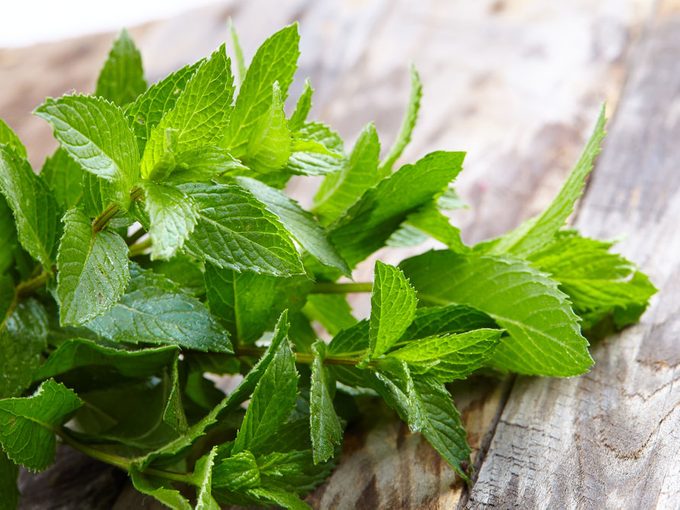The Health Benefits of Peppermint
Peppermint is not only for freshening breath and flavouring candy; it also has health benefits that are good for your stomach, chest and head

Source: The Amazing Healing Powers of Nature, Reader’s Digest
Discover the many health benefits of peppermint
A highly versatile herb long used to flavour sweets, toothpaste and mouthwashes among other things’peppermint is also used as a treatment for indigestion, irritable bowel syndrome, coughs and headaches.
Mint may someday offer even more health benefits: botanical-medicine experts say that in test tubes peppermint tea has demonstrated antibacterial and antiviral activities, too.
Like other mints, peppermint has elongated leaves with serrated edges. A cluster of purple flowers crowns the stem in summer. The species we know as peppermint is a natural cross between watermint and spearmint.
Peppermint has been used for its health benefits for many years; traditionally it was a treatment for digestive problems, nausea, cholera, colds, cramps and bloating. It was also used as a chest rub in the nineteenth century to ease whooping cough
How to take peppermint as a health remedy
As a digestive aid: enjoy mint in cooking or as a tea. (To make peppermint tea: steep dried peppermint in boiling water for 10 minutes, strain and sip.)
For irritable bowel syndrome: take 1 or 2 peppermint oil capsules 2 to 3 times a day; enteric-coated capsules are recommended because they pass through the stomach without being digested, so that the oil reaches the intestines.
For a tension headache: rub a few drops of peppermint oil tincture’10 percent oil, 90 percent alcohol’on your forehead. A 1996 study by researchers from Christian-Albrechts University in Kiel, Germany, even proved that peppermint can ease tension headaches in just 15 minutes and keep pain at bay for up to an hour.
For cough and cold: look for menthol or mint in cough and cold remedies, or in teas. While it doesn’t really break up nasal congestion, it does stimulate sensory receptors in the nose that detect cold temperatures’so you at least feel as if you’re breathing more freely.
For mild wheezing and coughing: try a minty chest rub.
Don’t give peppermint to babies or toddlers or use oil on their faces, as it can disrupt breathing.
Peppermint to ease tummy trouble
The essential oils in peppermint, especially menthol and menthone, are stomach-friendly. They were shown in laboratory studies conducted by pharmaceutical company SmithKline Beecham in 1983 and 1991 to relax the smooth muscle that lines your intestinal tract, which in turn eases cramping, and they stimulate the flow of bile, a digestive juice that breaks down fats. In addition, they relax the ring of muscle at the top of your stomach, which can make burping easier’but could also boost odds for heartburn if you lie down soon after a large meal that includes mint.
Peppermint for irritable bowel syndrome
Peppermint can help ease the pain of irritable bowel syndrome (IBS). When Turkish researchers gave 90 people with IBS a peppermint oil capsule or placebo 3 times a day for 8 weeks, the mint group found surprising relief’1 in 3 felt a significant reduction in abdominal pain.
In a 2007 study at the University of Chieti and Pescara, Italy, 57 people with IBS took 2 peppermint oil capsules twice a day for 4 weeks and experienced an average of 50 percent reduction in discomfort. In 2011, Australian scientists discovered that, as well as easing cramping in the intestinal tract, peppermint acts through a pain-sensing channel called TRPM8, reducing signals in nerve pain-sensing fibres in the intestinal walls. These fibres often go on high alert after a bout of stomach flu, which can lead to IBS, the researchers said.




